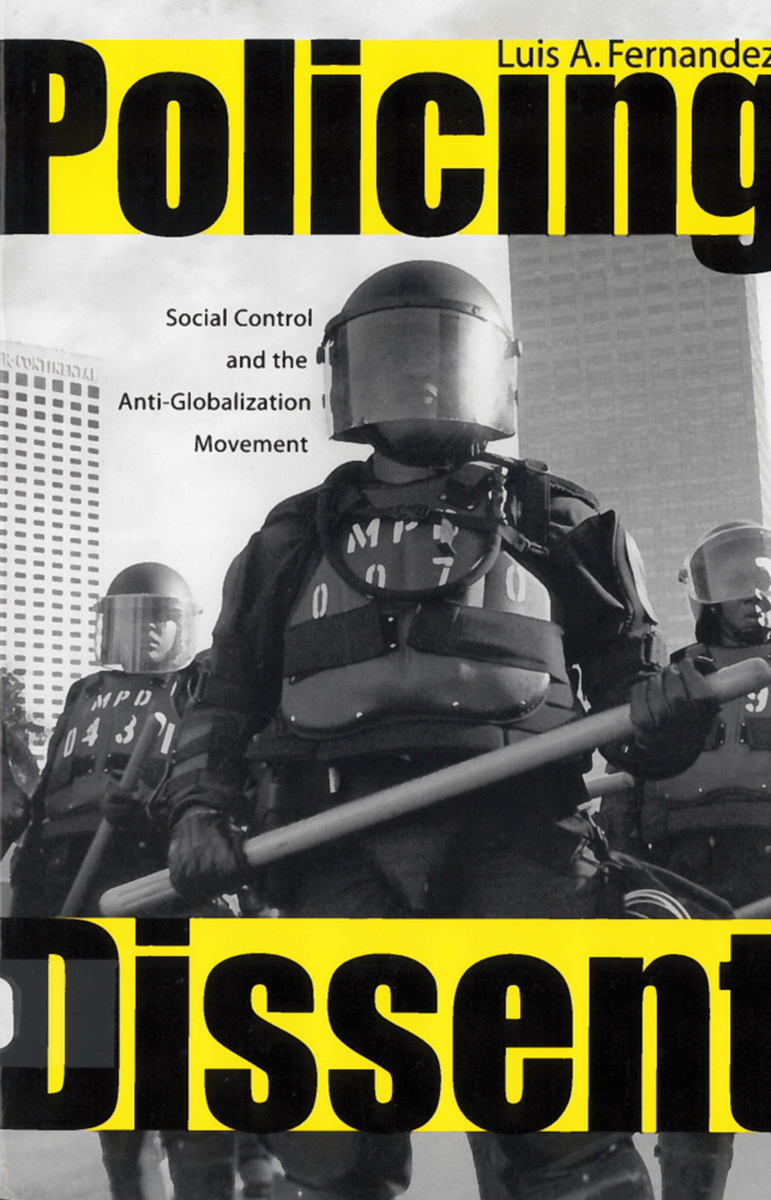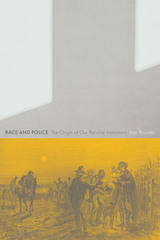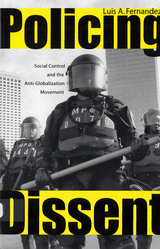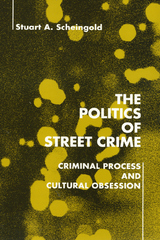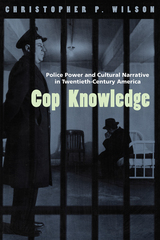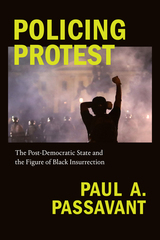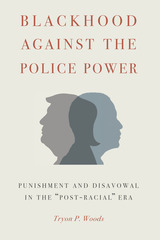"Policing Dissent is one of the best books I've come across in any field that examines the intersections of globalization, dissent, and late-modern social control."
— Peter Kraska, Senior Research Fellow, and author of Militarizing the American Criminal Justice
"Luis Fernandez's Policing Dissent is a fascinating and courageous book—a book where the crackling energy of contemporary street protest animates a careful analysis of late modern social control."
— Jeff Ferrell, author of Tearing Down the Streets: Adventures in Urban Anarchy
"A fascinating look at a vitally important movement for social change—and the obstacles it faces. Important reading for self-reflective artists."
— Starhawk, Activist and author of Webs of Power: Notes from the Global Uprising
"This book is frightening, urgent—crucial reading."
— Christian Parenti, author of Lockdown America and The Soft Cage
"Fernandez's survey of new protest policing helps us all feel the chill—not just of mass mobilizations but of dissent itself."
— Amory Starr, author of Naming the Enemy and Global Revolt
"An important contribution to our understanding of the state's response to unrest that puts the scholarship on protest policing into contact with the repressice reality."
— Kristian Williams, author of Our Enemies in Blue: Police and Power in America
"Luis Fernandez's Policing Dissent is a first-hand account of the nature and effect of social control practices utilized by police against the emergent American anti-globalization movement. ... a worthwhile piece of research."
— Mobilization
"An important contribution to our understanding of the state's response to unrest that puts the scholarship on protest policing into contact with the repressice reality."
— Kristian Williams, author of Our Enemies in Blue: Police and Power in America
"Policing Dissent is one of the best books I've come across in any field that examines the intersections of globalization, dissent, and late-modern social control."
— Peter Kraska, Senior Research Fellow, and author of Militarizing the American Criminal Justice
"Luis Fernandez's Policing Dissent is a first-hand account of the nature and effect of social control practices utilized by police against the emergent American anti-globalization movement. ... a worthwhile piece of research."
— Mobilization
"A fascinating look at a vitally important movement for social change—and the obstacles it faces. Important reading for self-reflective artists."
— Starhawk, Activist and author of Webs of Power: Notes from the Global Uprising
"Luis Fernandez's Policing Dissent is a fascinating and courageous book—a book where the crackling energy of contemporary street protest animates a careful analysis of late modern social control."
— Jeff Ferrell, author of Tearing Down the Streets: Adventures in Urban Anarchy
"This book is frightening, urgent—crucial reading."
— Christian Parenti, author of Lockdown America and The Soft Cage
"Fernandez's survey of new protest policing helps us all feel the chill—not just of mass mobilizations but of dissent itself."
— Amory Starr, author of Naming the Enemy and Global Revolt
